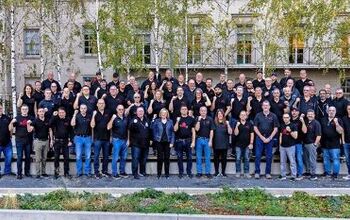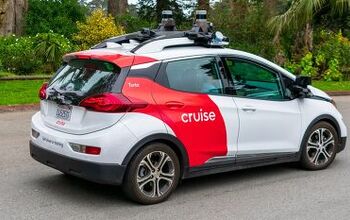5 Views
Chart Of The Day: The Amazing Affordable Automobile Edition
by
Edward Niedermeyer
(IC: employee)
Edward Niedermeyer
More by Edward Niedermeyer
Published February 21st, 2011 7:15 PM

































Comments
Join the conversation
Here's the whole article, with some perspective: http://comerica.mediaroom.com/index.php?s=122&item=1034 The chart shown above omits the earlier part of the curve, which goes back to 1979 and 23 weeks, respectively: http://i.bnet.com/blogs/bmp_affordability.bmp?tag=content;drawer-container Here's a mystery: Cars seem to become more affordable during a recession. Is this due to mfrs cutting their own throats to move the metal?
To make it more meaning what is the Average weekly wage (AWW)? With that info we could now start comparing vehicle prices across the world, especially with global cars, i.e. Jeep, Chysler, variuos flavours of Chevrolet (Daewo) etc.. I would personnally like to think that when we purchase a Jeep Grand Cherokee 3.6 V6 Auto laredo for approximately $45,000 AUS and you guys can buy one for about $30,215 US that it takes us both the same amount of AWW. Because $45,000 AUS = $45,158 US and $30,215 US = $30,116 AUS So we are getting ripped off by about $AUS15,000 to ship a car from the States to Oz, or the distributer in Oz is charging what the market can bear.
I am too lazy to argue or offer rebuttal but invite those who care and interpret as they desire the many graphs and charts the Web can offer that display other economic indicators that show or suggest that income/costs/other economic arenas have altered over time in areas that result in declining purchasing abilities, especially for folks in the lower income demographics. Interpretations vary and, as always, question the source since preconceived notions can and will affect how data is displayed.
Back in the early 1960's, we needed a different car, because the 1953 Dodge my parents owned at the time was shot. My dad wanted a nice 1956 Dodge 4 dr. sedan, blue and white, but could not get a loan for - are you ready? - $600.00!!! Imagine that and my mom and dad's disappointment and embarassment that they could only afford a $400.00 loan. I overheard some of that conversation at the bank, too, and sensed that it wasn't pretty and saw the shame in my dad's face. They had to settle for a 1955 Dodge Royal Lancer, 2 dr. hardtop - beautiful three-tone paint, but a piece of garbage as it was in the shop seemingly every 6 months with something wrong. So, what is an "affordable" car? Depends on income, bottom line. A new car? Never for my parents, just a pipe dream. It still hurts to relate that experience some 50 years later, too. We were a "working-poor" family, if you had to categorize where we were on the food chain.